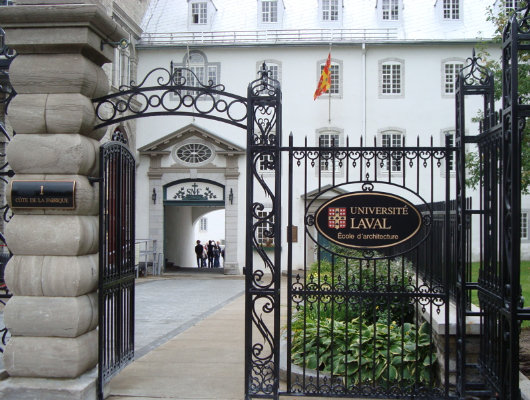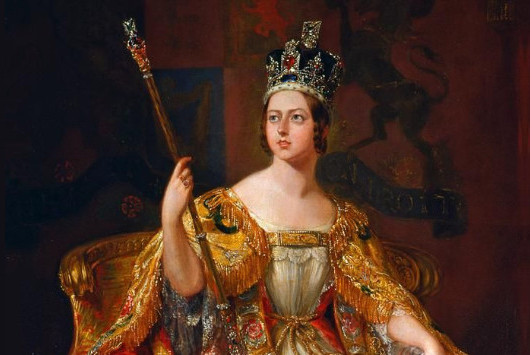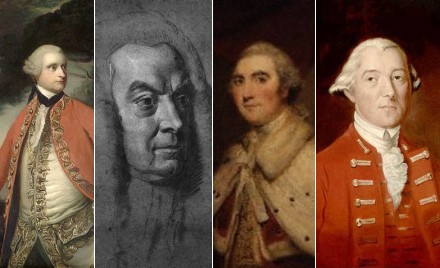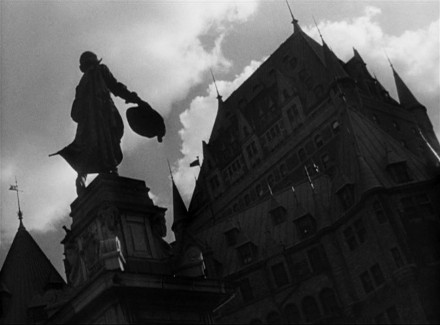Quebec
About Andrew Cusack
 Writer, web designer, etc.; born in New York; educated in Argentina, Scotland, and South Africa; now based in London.
Writer, web designer, etc.; born in New York; educated in Argentina, Scotland, and South Africa; now based in London. read more
News
Blogs
Reviews & Periodicals
Arts & Design
World
France
Mitteleuropa
Knickerbockers
Argentina
The Levant
Africa
Cape of Good Hope
Netherlands
Scandinavia
Québec
India
Muscovy
Germany
Academica
The Petit Séminaire de Québec

Adjoined to the ancient Cathedral Basilica of Notre-Dame in Quebec City is the Petit Séminaire. The Séminaire de Québec was founded in 1663 by the Blessed François Laval to train priests for the Vicariate Apostolic of New France, and the Petit Séminaire, its secondary school, was founded just five years later to teach both colonial French and native Indian youths. Among the school’s former pupils are four prime ministers of Québec, two lieutenant-governors (as the Queen’s viceregal representative in the province is known), and many other writers, politicians, and important figures of history. The Petit Séminaire survives today as a private Catholic secondary school.
The Annual Inspection

The ceremonial Changing of the Guard takes place at Rideau Hall, Canada’s viceregal palace, and Parliament Hill during the warmer months of the year. I recall with great fondness a summer trip to Ottawa when I was but a little boy and watching the Changing of the Guard on the green in front of the splendidly gothic parliament buildings. I instantly wanted to become a Canadian soldier, and pondered how many chocolate bars I could hide in the bearskin cap of a red-tunic’d guardsman. (Needless to say, I have not become a Canadian soldier, but Sa Majesté need only call and I would be at her service).
The Royal Military College of St. John

WHAT BETTER WAY to celebrate this, the feast of St. John the Baptist and the national day of Quebec, than to bring you news of the reëstablishment of the Collège militaire royal de Saint-Jean. The site in the town of Saint-Jean-sur-Richelieu was first put to a military use in 1666 when the French soldiers of the Carignan-Salières Regiment. The Collège militaire royal, however, was only founded in 1952 when it was inaugurated by the Rt. Hon. Vincent Massey, CC, CH, GCStJ, CD, PC as a classical college to increase the number of French-speaking officers in the Army, the Royal Canadian Navy, and the Royal Canadian Air Force.
Christ at the heart of Quebec
Quebec, la belle province, was once a land as Christ-haunted as Flannery O’Connor’s American South, with classical parish churches at the heart of towns and cities, and crucifixes in classrooms, courtrooms, and most prominently looking down from on high above the Speaker’s Chair in the Parliament of Quebec. (Alfred Hitchcock’s “I Confess” superbly depicts Quebec’s Catholic society in the 1950s). While the so-called “Quiet Revolution” of the 1960s created an altogether more secularized modern society, robbing the Quebecois of their cultural and religious heritage, the crucifix in parliament remained, most recently challenged by the Bouchard-Taylor report, released this week.
Quebec has undergone an identity crisis concurrent with its latest wave of immigration, most of these immigrants hailing from Africa and the Middle East. Whereas there is no dominant ethnic group or ethnic-based identity in English-speaking Canada (descendants of Britons comprising 34% of the population), in Quebec 77% of the population are ethnic French-Canadians. Of those Quebecois whose primary language is French, 71.7% claim that their society is “overly tolerant” with regard to immigration (a figure that drops to 35.2% for those whose primary language is not French).
The specially-commissioned Bouchard-Taylor report makes a number of recommendations of how to better integrate the newer immigrants, and repeatedly calls for the removal of the crucifix from parliament as well as an end to all public prayers at government functions.
Happily, the National Assembly of Quebec has unanimously passed a resolution stating that the crucifix will stay where it is. The motion was proposed by the Premier of Quebec, Mr. Jean Charest, and Mr. Charest’s Liberals were joined by the official opposition, the Action democratique de Quebec, and the separatist Parti Quebecois.
“We cannot erase our history,” Premier Charest said. “The crucifix is about 350 years of history in Quebec that none of us are ever going to erase, and of a very strong presence, in particular of the Catholic Church. And that’s our reality. And those who come to Quebec are joining a society where that history is now something that is part of our story.”
The Bouchard-Taylor report, however, draws some altogether different conclusions. “Catholicism has left an indelible mark on Québec’s history,” the report concedes. “Traces of it are all around us. Under the principle of the neutrality of the State, religious displays linked to the functioning of public institutions should be abandoned. Thus, we do not believe that the crucifix in the National Assembly and the prayers that precede municipal council meetings have their place in a secular State. In both instances, public institutions are associated with a single religious affiliation rather than addressing themselves to all citizens.”
“That being the case,” the report continues, mixing common sense with liberal cant, “it would be absurd to want to extend this rule of neutrality to all historic signs that no longer fulfil an obvious religious function, e.g. the cross on Mont-Royal or the crosses on old buildings converted to secular uses. The same is true of Québec toponymy, which is largely inspired by the calendar of the saints. Quebecers’ common sense will surely prevail in this respect.”
(Rather absurdly, the Societé Saint-Jean-Baptiste de Montréal, a cultural nationalist group named after the province’s patron, St. John the Baptist, has stated in response to the report that it wholly supports the concept of a secular Quebec and that prayer has no place in civic forums.)
It would be more heartening if the National Assembly’s refusal to remove the crucifix were evidence of a renewed commitment to keep Christianity as the governing principle of Quebec society, but sadly Our Lord has been reduced to a cultural relic of great importance. However, the mere fact that it is being left alone, despite many challenges, gives us hope. So does the surprising success of Quebec’s ADQ party, which came from almost nowhere to within a few breaths of actually forming the government at the last provincial election.
Should the ADQistes capture the premiership at the next election they will have succeeded in bringing moderate conservative government to one of the New World’s most secularized bailiwicks. Conservatives, having once written off the province entirely, should definitely keep Quebec on our list of “ones to watch”.
[First published in Taki’s Magazine]
Victoria Day – Fête de la Reine
The Official Birthday of the Queen of Canada

ELIZABETH II will have had, in her lifetime, more birthdays than Methuselah. This is because, in addition to the actual date of her birth, April 21, 1926, she has several different days which are designated as the Sovereign’s Official Birthday. In Britain, her birthday (which is the official national day of the United Kingdom) generally falls on the first or second Sunday in June and is the occasion of the ceremony of Trooping the Colour. Australia celebrates her birth on the first Monday in June with a public holiday, except for in Western Australia, where it is usually either the last Monday in September or the first Monday in October. This is the day when the latest members of the Order of Australia are announced. New Zealand also holds the Sovereign’s Birthday on the first Monday of June. Fiji is now a republic but Elizabeth II remains ‘Paramount Chief of Fiji’ and so a Monday in June is declared a holiday each year to commemorate her birth.
‘We’ve Lost More Than We’ll Ever Know’
In Three Corners of the Commonwealth, Popular Musicians Demonstrate Rejection of Modernity

In South Africa, England, and Quebec, popular musicians have expressed regret over the rejection of their traditional cultures by the destructive onward march of modernity. The hugely popular song ‘De La Rey’, sung in Afrikaans by Bok van Blerk I have already explored in greater depth in an article for Norumbega, but ‘Roots’ by England’s Show of Hands and ‘Dégénération’ by Québécois group Mes Aïeux are worthy of notice.
‘Roots’, as one would expect from the title, decries the severing of the English people from their lyrical musical tradition and lifestyle, being replaced by “Indian, Asian, Afro-Celt”, while the song’s refrain evokes images of a people adrift: “Haul away boys let them go/ Out in the wind and the rain and snow/ We’ve lost more than we’ll ever know/ On the rocky shores of England”. In one verse, the song taps into a particular pet peeve of mine, the complete invasion of pubs by the dreaded television screen:
Is three folk singers in a pub near Wells
Well I’ve got a vision of urban sprawl
Pubs where no one ever sings at all
And everyone is staring at a TV screen
Overpaid soccer stars, prancing teens
Australian soap, American rap
Estuary English, Baseball cap
There is no greater killer of good conversation than the massive influx of television screens into the pubs. Just the other evening I was down in our regular in Bronxville and from my vantage point alone I could see three television screens. The bright technicolor projection of baseball, soccer, football, and rugby into an otherwise dark space is too great a distraction for the eye. Bad enough sitting in a booth, it is even worse having dinner at the bar when you do not at least have the advantage of sitting opposite your drinking companion. How much more of a good time it would be without those dazzling displays, and without the obnoxiously loud music, either piped in from the jukebox or else some third-rate band singing third-rate cover songs of third-rate rock groups. Bleccch! It is those moments when one yearns to be ensconced by the fire in the Russell on the Scores in St Andrews, either accompanied solely by a book and a solid pint, or engaged in the usual joviality with the after-Rosary crowd.
The Québécois song, meanwhile, laments the decline of the family from large in size and from tied to the earth to solitary and confined in the city. The name of the band — Mes Aïeux — means “My Ancestors” and ‘Dégénération’ is a play on words, meaning ‘degeneration’ but also soundling like ‘des generations’ — ‘of the generations’. The song opens:
Ton arrière-grand-père, il a labouré la terre
Et pi ton grand-père a rentabilisé la terre
pis ton père, il l’a vendu pour devenir fonctionnaire
Et pi toé mon p’tit gars, tu sais pu c’que tu vas faire
Dans ton p’tit trois et d’mi ben trop cher, frète en hiver
Il te vient des envies de dev’nir propriétaire
Et tu rêves la nuit d’avoir ton petit lopin d’terre
Your great-great grandfather cleared the earth
Your great-grandfather laboured on the earth
Your grandfather turned a profit from the earth
Then your father sold the earth to become a bureaucrat
Now you, my little man, you don’t know what to do
In your little 3 room apartment – too expensive and cold in the winter
You want something to call your own
And you dream at night of having your own little piece of earth.
The next verse goes on about the maternal line of the family: the great-great grandmother “had fourteen kids”, the next generation “had about as many”, the next “had three, that was enough for her” but “Your mom didn’t want any, you were an accident”.
Quand tu fais des conn’ries, tu t’en sauves en avortant
Mais y’a des matins, tu te réveilles en pleurant
Quand tu rêves la nuit d’une grande table entourées d’enfants
Now you, my little lady, change partners all the time
When you make a mistake you escape by aborting
But there are mornings you awake crying
When you dream in the night of a large table surrounded by little ones.
The song is one of the most popular downloads on iTunes Canada, and the band’s most recent album has gone double-platinum.
Music videos of ‘De La Rey’, ‘Roots’, and ‘Dégénération’ after the jump.
Sources Fides et Ardor: Sign of Hope – Mes Aïeux | Fides et Ardor: The People Speak (or sing…)
Previously: Breaking the Mold in Quebec | The Men Who Saved Quebec | Hitchcock in Quebec
The Men Who Saved Quebec

The British Crown’s toleration of Catholicism in Quebec was cited by the rebel colonists of the 1770’s as, ironically, an ‘intolerable act’. That the Church of Rome, that bastion of backwards conservatism and slavish hierarchy, could be tolerated in the lands under the power of the British parliament riled the Whigs—the enlightened liberal progressives of the day. Indeed, Benjamin Franklin was even so foolish as to go to Quebec as an emissary of the ‘Continental Congress’ to persuade the natives to rebel against the Crown; Congress’s proposals to ban Catholicism and prohibit the use of the French language ensured he was not successful.
The modern orthodox opinion of historians on the Quebec Act of 1774—the act that granted toleration to the Church—is that it was merely a persuasive exercise to keep les Canadiens from rebelling. A 1989 book challenged this perspective, arguing instead that a handful of British aristocrats were determined to ensure that Quebec did not become another Ireland: where Protestant ascendancy was thrust upon an unwilling nation of Catholic nobles, merchants, and peasants.
The following review by Gary Caldwell was published in a Canadian journal in 2001.
|
Philip Lawson.
The Imperial Challenge: Quebec and Britain in the Age of the American Revolution. Montreal and Kingston: McGill-Queen’s University Press. 192 pages. US$27.95. |
WHY REVIEW A BOOK published twelve years ago? I will explain. But first, let me tell you what it’s about.
When Britain took possession of Canada at the Treaty of Versailles in 1763, it faced an “imperial challenge:” how to integrate into the empire a society fundamentally different from England – in language, religion, and legal and political institutions. At the time, England was vigorously intolerant of Roman Catholicism or “popery,” the religion of its major enemies, France and Spain. British Protestantism was closely tied to the dominant Whig political ideology born of the Glorious Revolution of 1688-89. This doctrinal legacy prescribed that all British subjects were possessed of very definite and equal liberties, liberties endowed upon and limited to those who conformed to the Whig-Protestant definition of being British.
Hence the problem of 1763. English law and constitutional practice allowed only for protestant public officials and elected representatives. This meant excluding the entire French-speaking population, some 70,000 to 80,000 (the “new subjects”) as compared to some 300 Protestants established in the colony (the “old subjects”).
There were two schools of thought as to what should be done. The Whig position, favoured by much of the English political leadership and commercial class on both sides of the Atlantic, was not to accommodate the new subjects. It amounted to an attempted destruction of the local culture and to exclusion of the French-speaking population from all juridical, political and social positions, the hoped-for consequence being assimilation in one, perhaps two, generations. In short, what had been imposed in Ireland with the “protestant ascendancy.”
The opposing school of thought, still marginal in 1763, believed such a policy both impracticable and undesirable. James Murray, Lord Shelburne, Lord Dorchester (Gary Carleton), H. T. Cramahe, Alexander Wedderburn, Lord Mansfield and William Knox not only held that a Protestant ascendancy in Quebec would ruin the colony, they also believed that Quebec society was deserving of being preserved. Murray and Dorchester, who knew Quebec and its people, were adamant: the Canadians were a good “race”—in Murray’s words, “perhaps the best and bravest race on the globe” (p. 48)—and if protected they and their society would flourish and be loyal to the Crown. As it happened, all of these administrators and Crown legal officers, with the exception of Cramahe, were Anglo-Irish or Scottish; not one of them was of English origin.
But how were the Canadians and their culture to be accommodated? There were, as Lawson demonstrates, three distinct dimensions to this accommodation. The first was to respect the prevailing legal code and custom in civil and property matters; the second, to refrain from putting into place an English representative assembly because it would be the instrument of the 300 or so English and American voters in the colony. By far the most important was the third dimension, tolerance in Quebec of Roman Catholicism, which meant the nomination of a Bishop, the tithe and the right of Catholics to hold public office. Dorchester and the others successfully won these concessions in London by 1770, and they were contained in the Quebec Act in 1774, to the horror of much of English public sentiment, and especially the Americans who were more resolutely against “popery” and more Whig than the English themselves.
When Benjamin Franklin arrived in Montreal in 1775 with the invading army of the Continental Congress, he carried secret orders to ban the popish religion and the French language. Fortunately, the Americans were stopped in Quebec by no other than Dorchester, back from getting the Quebec Act through Parliament. At the head of an army of old and new subjects he broke the 1775-76 siege of Quebec.
Lawson’s interpretation is insightful in putting the events into the context of the Irish question. The major players in promoting the accommodation that became the Quebec Act had in mind “the Irish Imbroglio,” and were determined not to repeat the error of the “protestant ascendancy” in Ireland. The Quebec Act emerges clearly as the culmination of thoughtful and courageous policy formulation, a model of generous statesmanship. Hence, as Lawson goes on to argue, the “toleration” of Roman Catholicism in the Quebec Act paved the way for the British Acts of Toleration of 1778.
Lawson also helps understand why Murray, Dorchester and the others came to the conclusions they did about the Canathan problem. These men were essentially empirical conservatives who found the answer “in the past”—Quebec society as they had known it in the 1760s—and the “elastic nature of the British Constitution.” And here Lawson runs smack into the prevailing wisdom in Canadian historiography.
Lawson is insistent on the coincidental nature of any link between the Quebec Act and the American Revolution, affirming that there is no evidence that the inspiration for the Quebec Act was to placate the Canadians so as to keep them apart from the Americans. As this alleged link is one of the most tenacious myths in the Canadian historical consciousness, it is worth citing Lawson:
What can be done to dispose of this myth once and for all? Fifty years ago both Coupland and Burt said that they could find no evidence to justify such an assertion with Lanctot repeating the message in the 1960s, and nothing has yet come to light to contradict them (pp. 123-124).
When I first read this book in the early 1990s and realized how revolutionary his thesis was, I contacted Lawson to talk about his work. In passing, I mentioned that I supposed that The Imperial Challenge must have created quite a controversy in Canadian academic circles. His reply was “No, it has attracted very little attention in Canada.” (I never saw him again. I had arranged to see him a few years later, but just before I arrived in Edmonton he was admitted to hospital for terminal cancer and died shortly afterwards.) In subsequent years, I have been to McGill-Queens Press in Montreal to buy copies of his book to give to friends. Inquiring as to sales, I was told that only a few hundred copies had been sold. And, so far, I have encountered only one reference to Lawson’s book (in Yves Lamonde’s Histoire sociale des politiques au Quebec).
I was curious enough to go back recently to the reviews written when the book came out. There were 16 in Canada in French and English, in the United States and in the United Kingdom; all reviewers were quite positive except one (who wrote two of the reviews). They all commented positively on the extent and depth of the documentation, as well as the fresh reading from parliamentary debates, the personal archives of the principal players, and the press of the day. As for his interpretation of how the Quebec Act came to be, there is no suggestion that he was wrong in any respect. The negative reviewer suggests only that it is pretentious of Lawson to think he has added much to existing work on the Quebec Act. Of the 15 reviewers, a full half explicitly accredit Lawson with drawing out the intention of avoiding the error of Ireland.
Why, then, did a book, critically acclaimed by the author’s peers, which sheds considerable light on a pivotal period in the history of Quebec and Canada, drop out of sight in Quebec, and I suspect in the rest of Canada? Lawson calls into question the conventional wisdom on a very important subject in Canadian history, and no one takes notice. For instance, two prominent Canadians, Gerard Bouchard and John Raulston Saul, social thinkers who are presently reinterpreting Canadian history, make no mention, to my knowledge, of this book. A book that should have caused waves has generated scarcely a ripple.
Perhaps my assessment, as a non-professional historian, is faulty and I would welcome a demonstration of where I have erred. What are the factors that explain the untimely eclipse of Lawson’s work? Could it be simply that Canadian intellectual discourse is shallow, that a seminal work can be dropped into the water and hit bottom generating nothing more than a superficial ripple of perfunctory reviews and listings in compendiums? This is one possible explanation; a more certain explanation lies in ideology.
The ideological axe, starkly put, goes as follows. Quebec’s nationalist, republican-leaning contemporary intellectuals are loath to entertain the idea that a coterie of British Conservatives (half of them aristocrats) literally saved Quebec society by helping to keep it strong enough to withstand the renewed neo-liberal assault led by Lord Durham three quarters of a century later and, then, begin to rehabilitate the Quebec polity (under British institutions) in 1867. Such an idea being beyond the pale (again, the ghost of Ireland), they maintain the myth that the Quebec Act was political opportunism inspired by the American threat. What will it take for Quebec nationalist thinkers to recognize and appropriate the historical reality that Dorchester twice—in the Quebec Act and the siege of Quebec—saved Quebec? It is no exaggeration to assert that, had it not been for this one Anglo-Irish aristocrat, Quebec would likely have become anglicized and, subsequently, integrated into the American empire.
As for English-speaking Canada, the current crop of orthodox historians has long consigned our British imperialist past to the Marxist dust-heap of history: nothing good could possibly have come of it, all imperialisms being, by definition, bad. They are not about to disturb their orthodoxy that in contrast to Imperial Britain, which was incapable of any genuine sympathy for Quebec—only Canadian nationalist intellectuals are enlightened and respectful of Quebec society. So, they too maintain the “political opportunism” interpretation of the Quebec Act, despite its having been refuted by Lawson and his predecessors. Essentially, what we are seeing is a refusal to acknowledge a debt owed to dead white male Protestants (from Ireland and Scotland). But gratitude is not, as the contemporary French philosopher Alain Finkielkraut has pointed out, a hallmark of modern progressive thinkers.
I write this review knowing full well that it is too late for Lawson’s work to be rehabilitated. The Imperial Challenge is among the titles in this year’s McGill-Queen’s clear-the-warehouse sale.
Previously: Hitchcock in Quebec
Hitchcock in Québec

QUÉBEC, THAT STRANGE and charming province, is a most intriguing nation. It is where the British, French, and American tendencies clash and combine to form that most peculiar of all American varieties: le Québécois. Of course, since the 1960s Québec has become more French; no, not more French but more like France in that every year it plunges deeper into the depths of self-loathing: that hatred of one’s own tradition and history which has so marked out “the new Europe”. It is a race to assert one’s self by destroying any living connection to one’s past. Un jeu du fou. More’s the pity, as this once-vibrant melting pot of traditions expressed itself in interesting ways.
A splendid display of this Québec can be found in Alfred Hitchcock’s 1953 drama I Confess. The film had been recommended to me often and I finally got around to seeing it tonight. I won’t give away any of the plot, which is a good one, but Hitchcock lives up to his reputation with his excellent framing of the scenes. (Though I must admit, half of it is merely the settings in the Ville de Québec themselves). They include a peek into the Québécois Parliament. Above the Speaker’s dais is displayed not only the Sovereign’s arms, but also a crucifix, exhibiting our loyalties both temporal and spiritual. In the court room you find yet another blend of the Anglo and the French. As you no doubt recall from our handy little map, Quebec is a country with a mixed legal system. Founded as Nouvelle-France it had the civil system derived from the Romans. Captured by the British and later transformed into part of the Canadian Confederation, it has accrued layers of the Common Law so dear to we Anglos. The officials of the court wear British-style robes — the judge even has a tricorn hat — but over the jury looms a large crucifix. English government and French culture tempered by Catholic truth; not a bad mixture.
Anyhow, if you haven’t seen the film yet, here are a few snaps to enjoy until your Hitchcockian thirst is satiated. (more…)
Search
Instagram: @andcusack
Click here for my Instagram photos.Most Recent Posts
- Teutonic Takeover March 10, 2025
- Katalin Bánffy-Jelen, R.I.P. March 3, 2025
- Substack Cusackiensis March 3, 2025
- In the Courts of the Lord February 13, 2025
- American Exuberant February 10, 2025
Most Recent Comments
Book Wishlist
Monthly Archives
Categories


